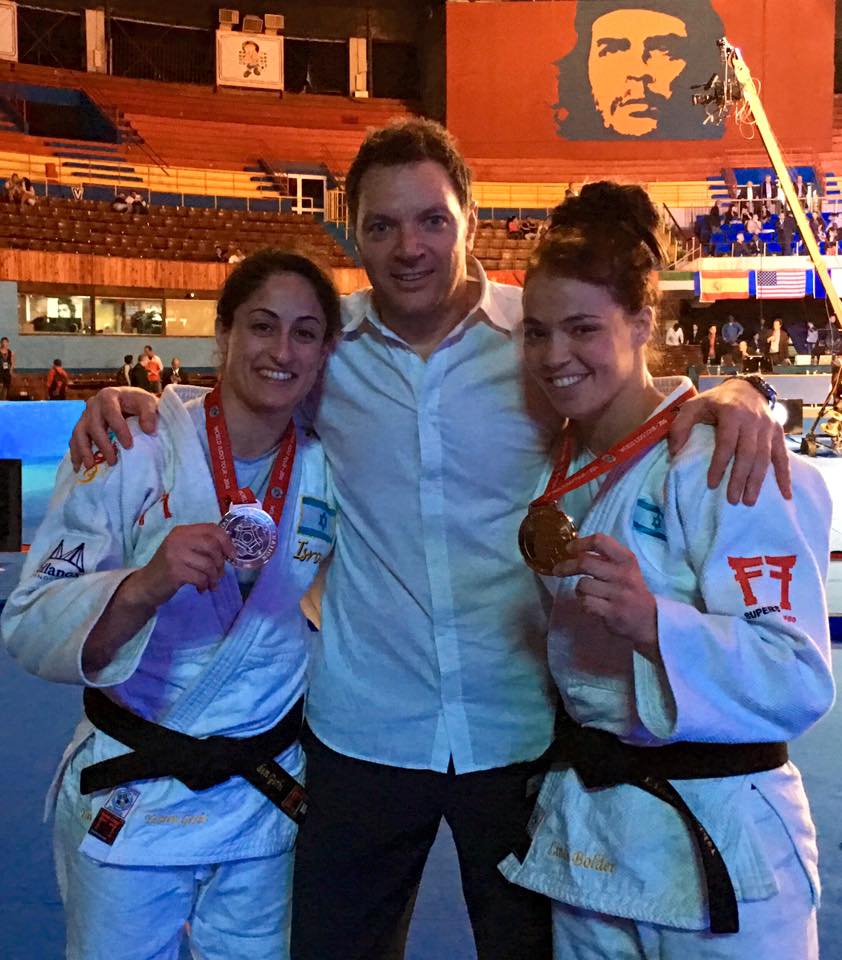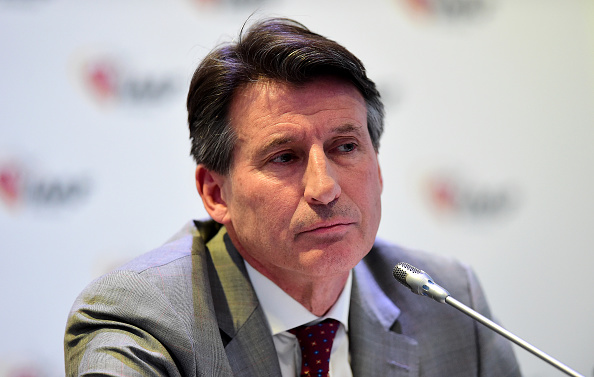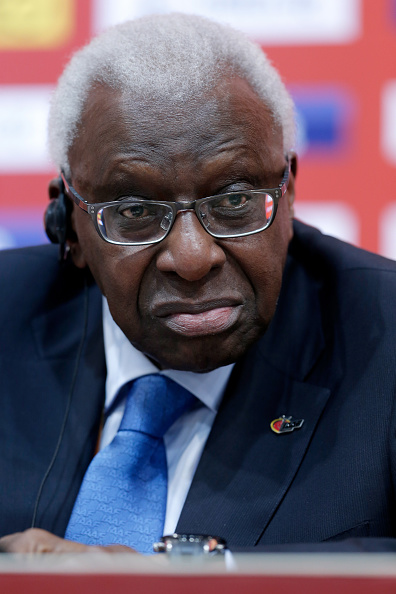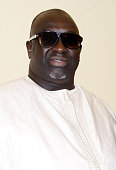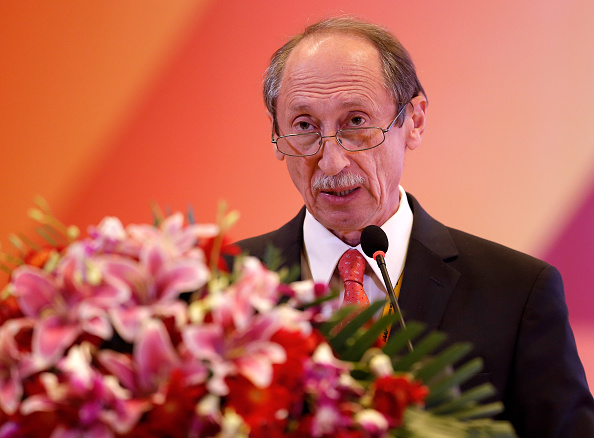HAVANA — It is closing in on a year now that Marius Vizer was cast off into something akin to the Olympic wilderness. His crime? Mostly, speaking the truth.
Now, amid scandal enveloping world soccer, track and field, tennis and perhaps extending even to the International Olympic Committee, the contrast with the International Judo Federation — which Vizer leads, then and now — could not be more ready, or more obvious.
In a world in which sport leaders too often pay mere lip service to the values that sport can advance and to the notion of athletes at the center of everything, Vizer and the IJF don’t just talk the talk.
No. They walk the walk, big time, and with judo poised to be one of the breakout sports at the Rio 2016 Summer Games — Brazilian judokas may well win bunches of medals —followed by a return to its spiritual home, Japan, for the Tokyo 2020 Games, the time is ripe for the rest of world sport to take a good look at judo, and see what it is doing so right.
In essence, the world needs more of the values that are at the core of judo: the Olympic trio of respect, excellence and friendship.
Last month, for instance, after a visit to Pyongyang, Vizer said that perhaps North Korea could play host to the 2017 world judo junior championships.
“Some people may not agree with the delivery,” Jose H. Rodriguez, the chief executive director of USA Judo, said here, referring to Vizer. “But the guy really is a visionary.”
To be clear: other Olympic sports showcase the Olympic values as well. And, since judo involves human beings, the sport has over its history witnessed — as in other areas of sport, and life — accusations of misconduct and wrongdoing.
But in judo, and especially under Vizer's watch at the IJF, the values are typically more than just talk. They’re put into action, and every day.
In November, after health authorities declared the country ebola-free, the Sierra Leone Judo Assn. organized a five-day training camp in Freetown, attracting 70 participants and — maybe even more important — thousands of spectators. The IJF had made a $10,000 donation at the start of last year to the national ebola response center.
Just this week, Sierra Leone saw a major judo demonstration — this time at a 10,000-seat stadium, at what was called the “Ebola Sport Festival,” judo highlighted along with rugby, soccer, volleyball, wrestling and cycling.
The world needs, too, more of what Vizer has always been unafraid of: speaking truth to power. And, with issues of governance increasingly taking center-stage in world sport, sport would be far better served if the reaction to such observations, whether offered critically or not, was less rooted reflexively in recrimination and retribution.
All that does is make for old-style personality politics. With the IOC suddenly stressing accountability, transparency and best-practice governance, there’s no place or time for that.
Enough time has now passed that Vizer’s comments at SportAccord last year in Sochi — which would quickly cost him the presidency of that umbrella sport-federation organization — ought to be given a second look.
For sure, Vizer hardly exercised the diplomacy and politesse that make for common currency in the Olympic sphere; at the same time, he has in large measure been proven right.
The thrust of Vizer’s observations: the IOC lacked transparency and too often ignored the international sport federations, including his plan for new multi-sport competitions. He called the IOC system “expired, outdated, wrong, unfair and not at all transparent.”
Speaking moments later to the same audience, IOC president Thomas Bach offered a gracious response. Proxies then stepped in to do the heavy lifting, foremost among them Lamine Diack, then the president of the IAAF, the international track and field federation.
Diack became the first boss of an international federation to suspend its SportAccord membership. He called Vizer a “chief coming from nowhere.”
Vizer, in response: “About the decision from Mr. Diack of the athletics, I want to make just one comment and with that I close this subject. I dedicate and I sacrifice my family for sport, I mean sacrifice in a way of dedication, and in my eyes [Diack is] a person who sacrifices sport for his family."
Last August, at the IOC all-members congress in Kuala Lumpur, Bach took the unusual step of permitting Diack — by then an honorary member — to make an address in response to allegations, spurred by the German broadcaster ARD, that the IAAF had covered up doping tests. Diack called the allegations a “joke.”
Now Diack is under criminal inquiry in France, suspected of accepting more than $1 million in bribes to help Russian athletes evade sanction for tests.
A World Anti-Doping Agency-commissioned report issued earlier this month further declared that Diack orchestrated a conspiracy to cover up tests, creating “an informal illegitimate governance structure outside the formal governance structure.” The report named, among other, Diack’s lawyer, and two of his sons, Papa Massata Diack and Khalil, also known as Ibrahima.
Meanwhile, the Guardian, the British newspaper, after reviewing May 2008 emails from Papa Massata Diack, when Doha, Qatar, was bidding for the 2016 Summer Games, said the notes suggest that six people referred to by their initials — corresponding to six IOC members — had “parcels” delivered through a “special advisor” in Monaco. Lamine Diack is believed to be that “special advisor,” the paper said.
Speaking Thursday at a news conference before competition got underway at the Havana Grand Prix, the first Olympic-sport event in Cuba since the announcement that relations between Cuba and the United States would be increasingly normalized, Vizer said, “I professed already my opinion last year in Sochi, predicting or not predicting everything that arrived after,” adding a moment later, “I can tell you that the unity, the solidarity of the judo family today is much stronger than all … big systems which sometimes try to contest the inherent values of sport.”
He also said, responding to another question, “The role of sport is to build friendships, peace, education and solidarity. Our sport, judo, has proven on many occasions that these values have no borders, even in moments when countries or regions of the world have contested different values or territories or opinions.”
And, as well: “The human spirit of the athletes is friendship, is peace, is to work together,” adding, “Always we have each other. We try, and we are working, to find solutions [to advance] unity, solidarity, peace and friendship.”
When a judo player comes out to the tatami, he or she bows in respect. Facing his or her opponent, another bow. When a match ends, before a decision is announced, belts are tightened, uniforms straightened. Upon leaving the mat, another bow.
In Friday’s opening-day finals, in the men’s under-66 kilogram weight class (145.5 pounds), France’s Loic Korval and Russia’s Kamal Khan-Magomedov were going at it when the Russian got something in his eye. Korval waited patiently while Khan-Magomedov cleared things up. Then they resumed fighting. Just as the final gong was sounding, Korval executed a throw that would have won the match — but it was ruled to have come after time had expired.
Did he throw a fit? Pout? Rage against the referee or the universe? No. He smiled and bowed, exiting with dignity and grace. Later, all four medalists — gold, silver, two bronze — posed for a winning photo.
Another example:
At the 2013 world championships in Rio, in the women’s under-63 kilogram weight class (139 pounds), Israeli Yarden Gerbi took first place. In the final, she defeated France’s Clarisse Agbegnenou in 43 seconds, dislocating Agbegnenou’s shoulder and leaving Agbegnenou momentarily unconscious after a chokehold.
In that moment, Gerbi had just become Israel’s first-ever worlds gold medalist. Did she jump and down, exulting in victory? No. She waited by her friend’s side until Agbegnenou came to, making sure Agbegnenou was as OK as could be. Only then did she get up and walk over to embrace her longtime coach, Shany Hershko.
Here Saturday, Gerbi won gold again, defeating Cuba’s Maricet Espinosa. In all, over the three days, Israeli fighters won two golds and a silver, perhaps signaling what is also to come in Rio.
“I have been waiting for this feeling of winning gold ... and this is too long for me,” Gerbi said afterward. “I’m not at my best right now but it’s important to win even when you are not at your best. Every time I think of the Olympics, I have the butterflies and this is my dream.”
Judo holds enormous potential. At the professional level in the United States, for instance, it barely gets newspaper space or even a mention on television highlight shows. Teddy Riner of France, the 290-pound force who is an eight-time world champion and 2012 London Games gold medalist, perhaps judo’s biggest star, has never competed in North America.
In some ways, the sport, even at a major stop like Havana on a world tour, seems remarkably curious. It’s unclear how many souls in Cuba could have afforded to buy IJF merchandise — but, no matter. There was none for sale in or around the arena at the creaking Ciudad de la Deportiva complex.
That said, on the theory that numbers don’t lie, clearly the sport is doing a lot of things right, and in a lot of places. Here are figures from the 2015 world championships in Astana, Kazakhstan:
Television viewership of 193 million viewers, up 72 percent from 110 million at the 2014 championships in Chelyabinsk, Russia.
On Facebook, during the week-long 2015 championships: 28 million impressions and 4.8 million engagements (meaning likes, shares or comments). Twitter: almost 1 million active users.
As is now usual, the Havana event was live-streamed on www.ippon.org.
Judo can be found pretty much everywhere in the world: 195 national federations.
To that end, IJF events — and, as well, judo’s constructive influence — also travel the globe.
In September, working in accord with the IOC’s Solidarity development program, Hanato Saki, a Japanese judo expert, wrapped up a five-month coaching stint in Laos, by any measure one of the world’s poorest nations, where the means for sport are typically not readily available. At the Southeast Asian Games last year in Singapore, the Laotian judo team won a silver and two bronze medals.
A few weeks ago, the IJF won an award from a major Dubai-based organization for efforts to bring the sport to hundreds of children in the refugee camp at Kilis, Turkey, near the Syrian border. Some 17,000 refugees are there, 10,000 age 15 and under.
In accepting the award, Vizer said that bringing judo to the camp had brought refugee children a “small island of happiness,” adding, “We need to invest in our children. Sport can change the world and judo can teach young refugees honesty and fearlessness.”
The IOC, at its policy-making executive board meeting in December, said it had identified three refugees — a female Syrian swimmer training in Germany, a female Iranian taekwondo athlete training in Belgium and a male judoka from the Democratic Republic of the Congo in Brazil — who might be competitive enough to qualify for the Rio Games.
Twice last year, Vizer worked to ensure that Israeli athletes could compete at events in Arab nations — in May in Morocco, and then in late October in Abu Dhabi.
In Morocco, the crowd heavily booed the Israelis — and this after they’d had to wait in a room at the airport for eight hours before Vizer said the entire event was off unless the Israelis were in. In Abu Dhabi, the Israelis competed under not under their own flag but via IJF colors — in the same way that a Kosovo fighter, Nora Gjakova, competed here in Havana.
Were the two situations perfect? No.
Did the Israelis compete, however? And in this way, did the two events mark a step forward? For sure.
In an IJF statement issued at the close of the Abu Dhabi stop with the head of the Israeli Judo Federation, Moshe Ponti, the two said, “Our sport needs heroes. We don’t need martyrs. The Israeli judokas are heroes, as is anyone else who was involved to make their participation in the grand slam possible.”
In an interview here, Ponti said, “I said this the first time: maybe next time we fight with our flag and our anthem.” At the same time, he added of the crowd in Abu Dhabi, “Maybe everyone knew you were from Israel.”
It is in that spirit that judo came for the three-day Havana event — following up a 2014 stop here but, of course, the political scene with the Americans on a different path.
Amid rumors of a Havana visit by President Obama, perhaps as soon as March, Jeffrey DeLaurentis, the U.S. chargé d’affaires, came to watch some judo and said, “Cuba has been very active in international sports. I’m happy to be here watching our athletes perform,” adding, “Sports diplomacy is always very important, part of the people-to-people activities.”
Rodriguez of USA Judo said, “Sometimes things work out with perfect timing. Here we have the ambassador attending a judo competition. We were talking many years ago about ping-pong diplomacy. Now we are talking judo diplomacy.”
Antonio Castro, one of Fidel’s sons — Antonio Castro has been active in the campaign to get baseball back in the Summer Games — was also on hand, and said at an IJF gala later here, “Thank you for giving the chance to Cuba to organize a grand prix. Judo teaches values. It teaches how to win but also how to lose, and it gives the opportunity to athletes to share their experience.”
For his part, at that same gala, Vizer said, “There are some things in life we cannot achieve by money or power. This is the spirit,” of judo and of sport itself.

